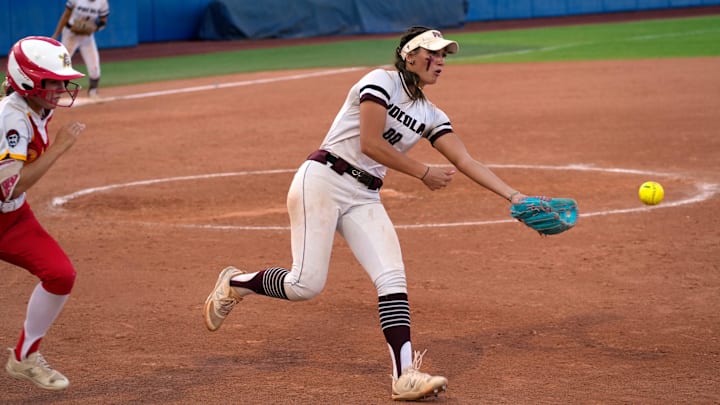The Differences Between Baseball And Softball Explained

At a surface level, the differences between baseball and softball seem pretty minor to those unfamiliar with one or the other. But when you look at the two games on a more granular level, you’ll find that there are some massive distinctions that make each quite unique from the other.
For the sake of brevity and clarity, we’ll be making comparisons between baseball and fastpitch softball. There are quite a few differences between fastpitch softball and the more casual slowpitch softball that we’ll save for another day.
MORE: How To Clean A Baseball Hat: 6 Easy Steps To Keep Your Cap Fresh and Shapely
The Positions
Each game positions nine players in the field: four infielders, three outfielders, a catcher, and a pitcher. Each game also allows for a designated hitter.
Speaking of pitching, that’s a position where things drastically differ between the two sports. In baseball, technically any method of delivery is legal. However, the overhand throw was clearly the most advantageous and became the go-to mechanic many, many years ago.
Contrarily, softball pitchers are required to throw the ball in an underhand movement. However, they are free to throw with any arc or speed they so choose.
There are substantial differences in each sport's pitching mounds, too. Softball pitchers work upon a flat 8-foot radius mound that resides 43 feet away for women and 46 feet away for men.
As for baseball pitchers, they work batters from 60 feet 6 inches away. Their pitching area has a radius of 9 feet with a raised sloping mound that can be a max of 10 inches in height.
The Balls
As for the ball they play with, there are key differences there too. A baseball is mandated to be white with a circumference of 9 inches. Softballs are much larger at 12 inches in circumference. They also must be optic yellow in color, and are manufactured to be less dense than baseballs.
Because of the density difference, baseballs have the capability to be thrown faster and hit harder than softballs. Thus the reasoning for our next comparison: field dimensions.
You may notice that softball fields are made with entirely dirt infields, also known as a “skinned diamond.” On the contrary, higher levels of baseball feature grass in the infield which helps to slow down harder-hit ground balls.
The Fields
Basepaths are quite different too. In softball, they are 60 feet apart, while in baseball they’re 90. Because of the shorter paths in softball, slap-hitting is a frequently used strategy for quick runners. Another deviance due to base paths is that baseball players can lead and steal at any time the ball is live. While softball players may not take a lead any time the pitcher possesses the ball within the pitcher’s area.
While exact rules are lax in both sports, outfield fence distances differ greatly, with softball fields being dramatically smaller. But exact dimensions vary drastically from ballpark to ballpark across both sports.
Batting
There are different batting regulations between the two sports. In professional baseball, bats must be made of wood and not exceed 42 inches in length. In college, high school, and Little League, aluminum bats are allowed.
For softball players, wooden bats are allowed but aren’t frequently used. Aluminum is the go-to option and must not exceed 34 inches in length.
Bunting is allowed in both sports. Two-strike foul balls keep the batter alive in both as well (unless bunting). And hit-by-pitch rules are essentially the same in both softball and baseball as well.
"Because of the shorter paths in softball, slap-hitting is a frequently used strategy for quick runners."
Game Length
Finally - game length. Higher-level baseball games culminate after nine innings of play (unless tied). While softball teams limit their bouts to seven innings a game.
Lots of differences, right? At least now the next time you find yourself taking in the sport you’re less familiar with, you’ll have a better bearing, and respect, for the rules of the game.
Recommended
Why Are Golf Courses 18 Holes? The History Behind Why Explained
Basketball Court Dimensions: Your Guide To Every Inch And Line On The Hardwood
